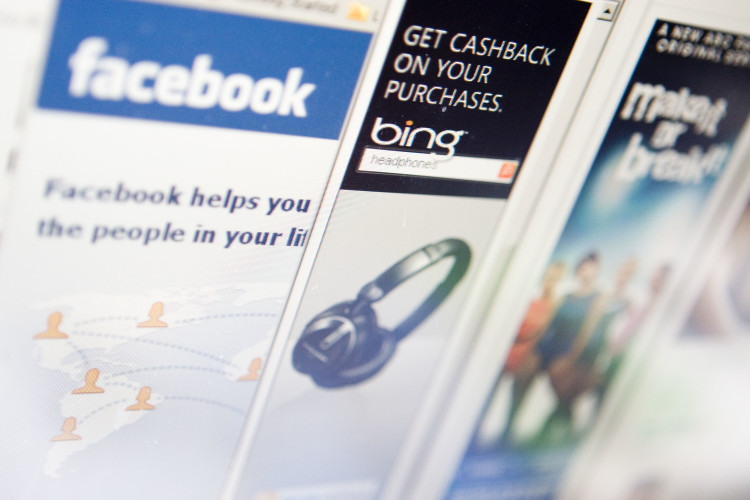Facebook Says It Removed Influence Efforts From Iran, Russia

published Aug 21, 2018, 7:58:34 PM, by Sarah Frier
(Bloomberg) —
Facebook Inc. for the first time named a country other than Russia that has been using fake accounts to manipulate global politics: Iran.
The social network said it removed 652 pages, groups and accounts for “inauthentic behavior” that originated in Iran and targeted people with news and information including political content in the U.S., U.K., Middle East and Latin America. In addition, an undisclosed number of pages, groups and accounts linked to sources the U.S. government previously identified as Russian military intelligence services also were removed, the company said.
The effort to manipulate social-media users also occurred on Twitter, which followed Facebook’s announcement by saying it had removed 284 accounts, including many that originated from Iran.
“Security is not something that you ever fully solve,” Facebook Chief Executive Officer Mark Zuckerberg said Tuesday on a call with reporters. “The shift we made from reactive to proactive detection is a big change, and it’s going to make Facebook safer for everyone over time.”
The disclosure, the second in a month, underscored the persistence of efforts to spread misinformation and discord leading up to the U.S. midterm elections in November, which will decide the makeup of Congress. Facebook has been working to safeguard global elections from foreign interference since it discovered, months after Donald Trump’s 2016 election as U.S. president, that Russia had been waging a campaign to influence voters, reaching about 150 million users in the process. The Menlo Park, California-based company, which was criticized for its lack of action by lawmakers and advocates, has hired more content moderators and security experts to oversee the social network.
In order to find and remove the campaigns, Facebook said it acted on tips from the U.S. government and the security firm FireEye. The narratives pitched by the manipulation efforts included anti-Saudi, anti-Israeli, and pro-Palestinian themes, as well as support for specific U.S. policies favorable to Iran, such as the U.S.-Iran nuclear deal, FireEye said in a blog post.
The findings were the result of four separate investigations, three with regards to Iran and one about Russia, Facebook said in a separate blog post. “These were distinct campaigns and we have not identified any link or coordination between them. However, they used similar tactics by creating networks of accounts to mislead others about who they were and what they were doing.”
Last month the company said that it uncovered evidence of election interference separate from Russia’s 2016 influence campaign. At that time, Facebook said it notified the U.S. government and deleted dozens of accounts and pages from people using false identities to coordinate events and stir up political unrest. The company said it’s still not comfortable linking that campaign to any country, saying the identities of the coordinators were more expertly masked. Politicians attributed the activity to Russia.
Tuesday’s removals were “further evidence that foreign adversaries are actively using social media to divide Americans and undermine our democratic institutions,” said U.S. Senator Mark Warner, a Virginia Democrat. “I’ve been saying for months that there’s no way the problem of social media manipulation is limited to a single troll farm in St. Petersburg, and that fact is now beyond a doubt.”
Sheryl Sandberg, Facebook’s chief operating officer, is expected to testify on Facebook’s progress alongside other companies in Congress on Sept. 5.
“We get that 2018 is a very important election year,” Zuckerberg said on the call, noting that there are vital contests in other countries, too. And this isn’t the end of the disclosures from Facebook. “I think it’s safe to say that we have a number of investigations going on and we’ll update you when we know more.”
Facebook said it will work to bolster safeguards so that it doesn’t take in advertising revenue from Iran, which is under U.S. sanctions. One of the Iranian ad campaigns has been ongoing since January 2015, while the other started in July 2012. Facebook was paid in Australian and U.S. dollars, Turkish lira and Indian rupees.
Twitter’s platform was also manipulated by Russian operatives ahead of the 2016 election, and the San Francisco-based company has been working to weed out fake accounts, bots and misinformation. Twitter said it’s working with other companies and law enforcement on this and other investigations.
“Our goal is to assist investigations into these activities and where possible, we will provide the public with transparency and context on our efforts,” Twitter wrote in a tweet.
–With assistance from Ed Ludlow.To contact the reporter on this story: Sarah Frier in San Francisco at sfrier1@bloomberg.net To contact the editors responsible for this story: Jillian Ward at jward56@bloomberg.net Andrew Pollack
COPYRIGHT
© 2018 Bloomberg L.P



No Comment